-
 bitcoin
bitcoin $87959.907984 USD
1.34% -
 ethereum
ethereum $2920.497338 USD
3.04% -
 tether
tether $0.999775 USD
0.00% -
 xrp
xrp $2.237324 USD
8.12% -
 bnb
bnb $860.243768 USD
0.90% -
 solana
solana $138.089498 USD
5.43% -
 usd-coin
usd-coin $0.999807 USD
0.01% -
 tron
tron $0.272801 USD
-1.53% -
 dogecoin
dogecoin $0.150904 USD
2.96% -
 cardano
cardano $0.421635 USD
1.97% -
 hyperliquid
hyperliquid $32.152445 USD
2.23% -
 bitcoin-cash
bitcoin-cash $533.301069 USD
-1.94% -
 chainlink
chainlink $12.953417 USD
2.68% -
 unus-sed-leo
unus-sed-leo $9.535951 USD
0.73% -
 zcash
zcash $521.483386 USD
-2.87%
how to solo mine bitcoin
Solo Bitcoin mining, while offering 100% block rewards, demands substantial hardware investment and faces astronomically low odds of success due to the network's immense hash rate, making profitability highly unlikely for most.
Mar 24, 2025 at 09:29 pm
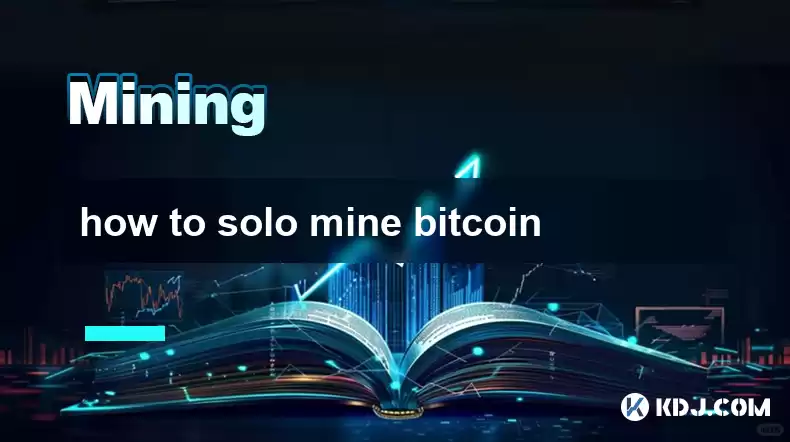
How to Solo Mine Bitcoin: A Deep Dive into the Challenges and Possibilities
Solo Bitcoin mining, the act of mining Bitcoin independently without joining a pool, is a challenging but potentially rewarding endeavor. It offers the allure of claiming 100% of the block reward, but the odds are significantly stacked against solo miners. This article explores the intricacies of solo Bitcoin mining, addressing the complexities and providing a detailed understanding of the process.
Understanding the Basics of Bitcoin MiningBitcoin mining involves solving complex cryptographic puzzles using specialized hardware. The first miner to solve the puzzle adds a new block to the blockchain and receives the block reward, currently 6.25 BTC. The difficulty of these puzzles adjusts dynamically to maintain a consistent block generation time of approximately 10 minutes. This difficulty makes solo mining exponentially harder over time.
The Hardware Requirements for Solo Mining BitcoinSolo Bitcoin mining necessitates substantial investment in specialized hardware, specifically ASICs (Application-Specific Integrated Circuits). These are purpose-built chips designed for maximum hash rate, the measure of computational power. The more hash rate your hardware possesses, the better your chances, however slim. You'll also need a powerful computer to manage the mining operation, reliable internet connection, and sufficient cooling systems for your ASICs. The initial capital outlay can be substantial.
Software Requirements and SetupSeveral mining software options are available, each with its own advantages and disadvantages. Popular choices include CGMiner, BFGMiner, and Antminer. Choosing the right software often depends on your specific hardware. The setup process typically involves configuring the software to connect to the Bitcoin network, specifying your mining pool (even for solo mining, you need to point to a solo mining pool, as explained later), and setting up your wallet address to receive the rewards.
Choosing a Mining Pool (Even for Solo Mining)Paradoxically, even solo miners often utilize a solo mining pool. These pools don't split the rewards; instead, they provide a platform to track your hash rate and calculate your probability of finding a block. This allows you to accurately assess your mining performance without the need for complex individual calculations. Examples include Slush Pool and 2Miners, offering solo mining options.
The Economics of Solo Bitcoin MiningThe economics are brutally unforgiving. The probability of a solo miner finding a block depends on their hash rate relative to the total network hash rate. With millions of miners contributing, the odds are astronomically low. The cost of electricity, hardware depreciation, and the potential for long periods without rewards must be carefully considered. You need to factor in the potential ROI (Return on Investment).
Step-by-Step Guide to Setting Up a Solo Bitcoin Mining Operation- Acquire ASIC Miners: Purchase high-hashrate ASIC miners from reputable vendors.
- Set Up Mining Hardware: Connect your ASICs to your computer and ensure proper cooling.
- Choose and Install Mining Software: Select suitable mining software and configure it according to the instructions.
- Configure Your Wallet: Create a Bitcoin wallet and ensure it's securely stored. Provide the wallet address to your mining software.
- Join a Solo Mining Pool: Register with a solo mining pool and provide your worker details.
- Monitor Your Mining Operation: Continuously monitor your hash rate, pool statistics, and block generation probability.
- High Initial Investment: Solo mining requires a substantial upfront investment in hardware and electricity.
- Low Probability of Success: The chance of finding a block solo is exceptionally low, leading to potential losses.
- Electricity Costs: Electricity consumption is significant, potentially outweighing any potential profit.
- Technical Expertise: A degree of technical knowledge is required for hardware setup, software configuration, and troubleshooting.
- Hardware Obsolescence: ASIC miners become obsolete relatively quickly due to technological advancements.
A: Solo Bitcoin mining is rarely profitable for the average individual due to the extremely low probability of finding a block and the high operational costs. Only those with exceptionally large-scale operations and very low electricity costs might see a profit.
Q: What is the best ASIC miner for solo Bitcoin mining?A: There isn't a single "best" miner. The ideal choice depends on your budget and the available models at the time. Look for miners with the highest hash rate per watt to minimize electricity costs.
Q: How long does it take to mine one Bitcoin solo?A: The time required to mine one Bitcoin solo is unpredictable and depends entirely on your hash rate and the network difficulty. It could take days, months, or even years, or never.
Q: Can I mine Bitcoin on my home computer?A: You can, but it's extremely inefficient and unlikely to yield any profit. ASIC miners are specifically designed for Bitcoin mining and far outperform CPUs and GPUs.
Q: What are the risks associated with solo Bitcoin mining?A: The primary risks include the high financial investment with a low return potential, the cost of electricity, and the possibility of hardware failure.
Q: What are the alternatives to solo Bitcoin mining?A: Joining a mining pool is a much more practical and common approach. Pools distribute the block rewards proportionally based on each miner's contribution.
Q: How can I improve my chances of solo mining success?A: The only way to significantly improve your chances is to increase your hash rate by acquiring more powerful and efficient ASIC miners. Even then, success is not guaranteed.
Disclaimer:info@kdj.com
The information provided is not trading advice. kdj.com does not assume any responsibility for any investments made based on the information provided in this article. Cryptocurrencies are highly volatile and it is highly recommended that you invest with caution after thorough research!
If you believe that the content used on this website infringes your copyright, please contact us immediately (info@kdj.com) and we will delete it promptly.
- Crypto Coaster: Bitcoin Navigates Intense Liquidation Hunt as Markets Reel
- 2026-02-01 00:40:02
- Bitcoin Eyes $75,000 Retest as Early February Approaches Amid Shifting Market Sentiment
- 2026-02-01 01:20:03
- Don't Miss Out: A Rare £1 Coin with a Hidden Error Could Be Worth a Fortune!
- 2026-02-01 01:20:03
- Rare £1 Coin Error Could Be Worth £2,500: Are You Carrying a Fortune?
- 2026-02-01 00:45:01
- Navigating the Crypto Landscape: Risk vs Reward in Solana Dips and the Allure of Crypto Presales
- 2026-02-01 01:10:01
- NVIDIA CEO Jensen Huang's Take: Crypto as Energy Storage and the Evolving Role of Tech CEOs
- 2026-02-01 01:15:02
Related knowledge
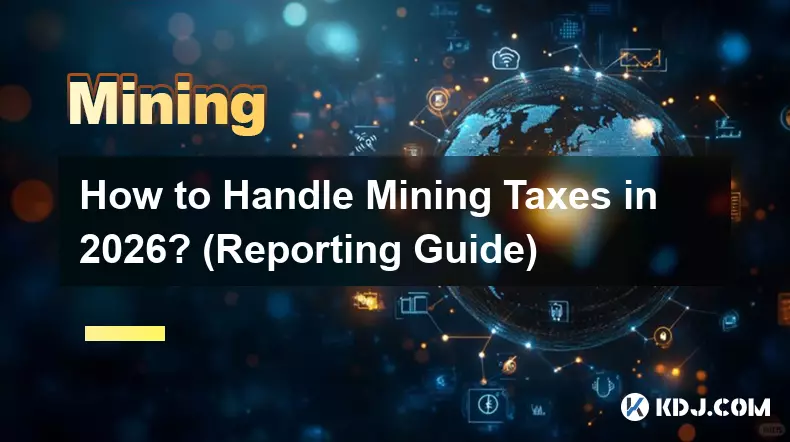
How to Handle Mining Taxes in 2026? (Reporting Guide)
Feb 01,2026 at 01:39am
Tax Classification of Mining Rewards1. Cryptocurrency mining rewards are treated as ordinary income at the fair market value on the date of receipt. 2...
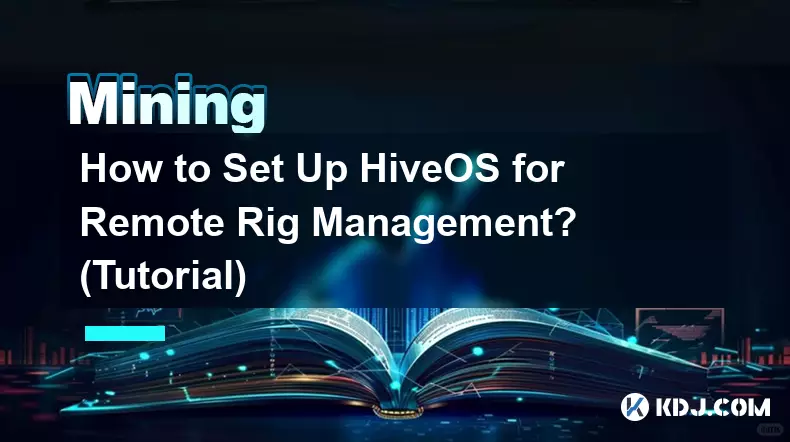
How to Set Up HiveOS for Remote Rig Management? (Tutorial)
Feb 01,2026 at 12:39am
Understanding HiveOS Fundamentals1. HiveOS is a Linux-based operating system specifically engineered for GPU mining rigs, offering lightweight perform...
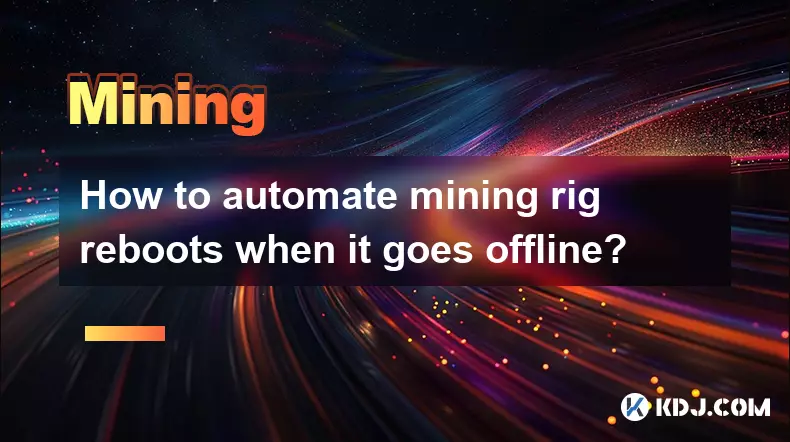
How to automate mining rig reboots when it goes offline?
Jan 23,2026 at 11:00pm
Monitoring System Integration1. Deploy a lightweight agent on the mining rig’s host OS that continuously reports hash rate, GPU temperature, and pool ...
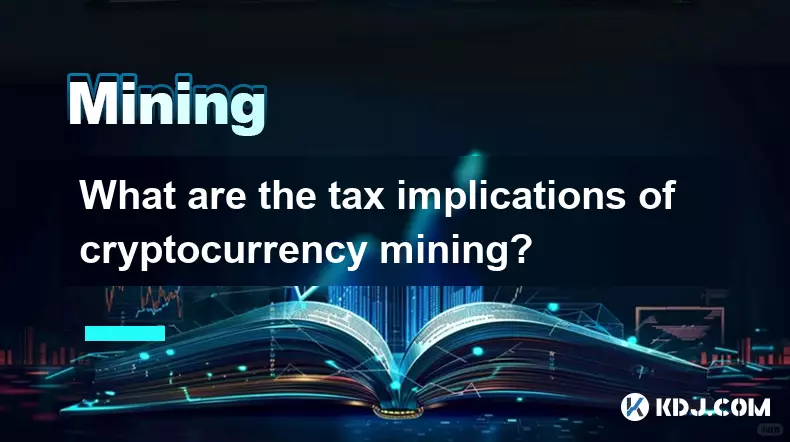
What are the tax implications of cryptocurrency mining?
Jan 23,2026 at 02:40am
Tax Treatment of Mining Rewards1. Cryptocurrency received as a reward for mining is treated as ordinary income by the IRS at the fair market value on ...
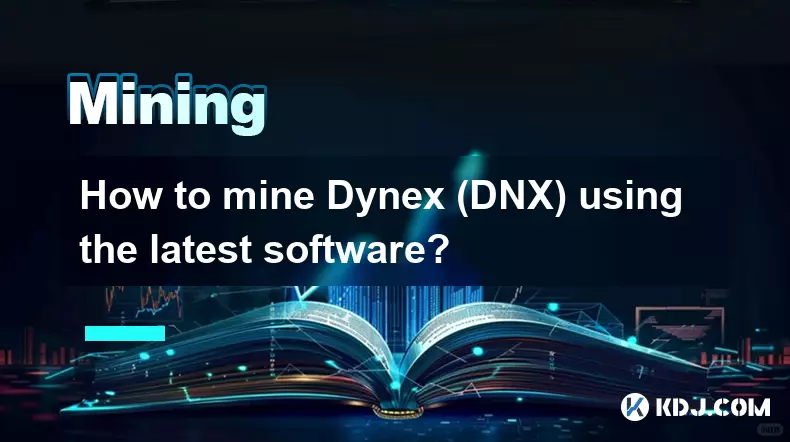
How to mine Dynex (DNX) using the latest software?
Jan 22,2026 at 10:00am
Understanding Dynex Mining Fundamentals1. Dynex (DNX) operates on a proof-of-work consensus mechanism optimized for neuromorphic computing workloads, ...
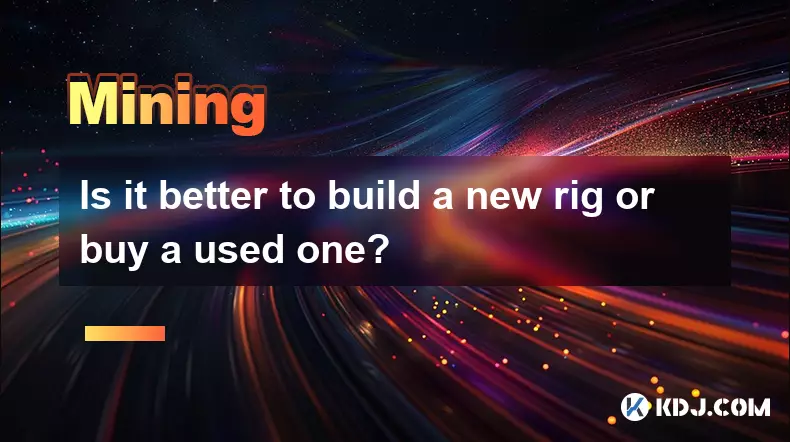
Is it better to build a new rig or buy a used one?
Jan 24,2026 at 10:20pm
Cost Efficiency Analysis1. New mining rigs come with manufacturer warranties, typically covering components for one to three years. This assurance red...

How to Handle Mining Taxes in 2026? (Reporting Guide)
Feb 01,2026 at 01:39am
Tax Classification of Mining Rewards1. Cryptocurrency mining rewards are treated as ordinary income at the fair market value on the date of receipt. 2...

How to Set Up HiveOS for Remote Rig Management? (Tutorial)
Feb 01,2026 at 12:39am
Understanding HiveOS Fundamentals1. HiveOS is a Linux-based operating system specifically engineered for GPU mining rigs, offering lightweight perform...

How to automate mining rig reboots when it goes offline?
Jan 23,2026 at 11:00pm
Monitoring System Integration1. Deploy a lightweight agent on the mining rig’s host OS that continuously reports hash rate, GPU temperature, and pool ...

What are the tax implications of cryptocurrency mining?
Jan 23,2026 at 02:40am
Tax Treatment of Mining Rewards1. Cryptocurrency received as a reward for mining is treated as ordinary income by the IRS at the fair market value on ...

How to mine Dynex (DNX) using the latest software?
Jan 22,2026 at 10:00am
Understanding Dynex Mining Fundamentals1. Dynex (DNX) operates on a proof-of-work consensus mechanism optimized for neuromorphic computing workloads, ...

Is it better to build a new rig or buy a used one?
Jan 24,2026 at 10:20pm
Cost Efficiency Analysis1. New mining rigs come with manufacturer warranties, typically covering components for one to three years. This assurance red...
See all articles





















![THIS IS THE HARDEST COIN TO GET [POLY DASH] THIS IS THE HARDEST COIN TO GET [POLY DASH]](/uploads/2026/01/31/cryptocurrencies-news/videos/origin_697e0319ee56d_image_500_375.webp)




















































